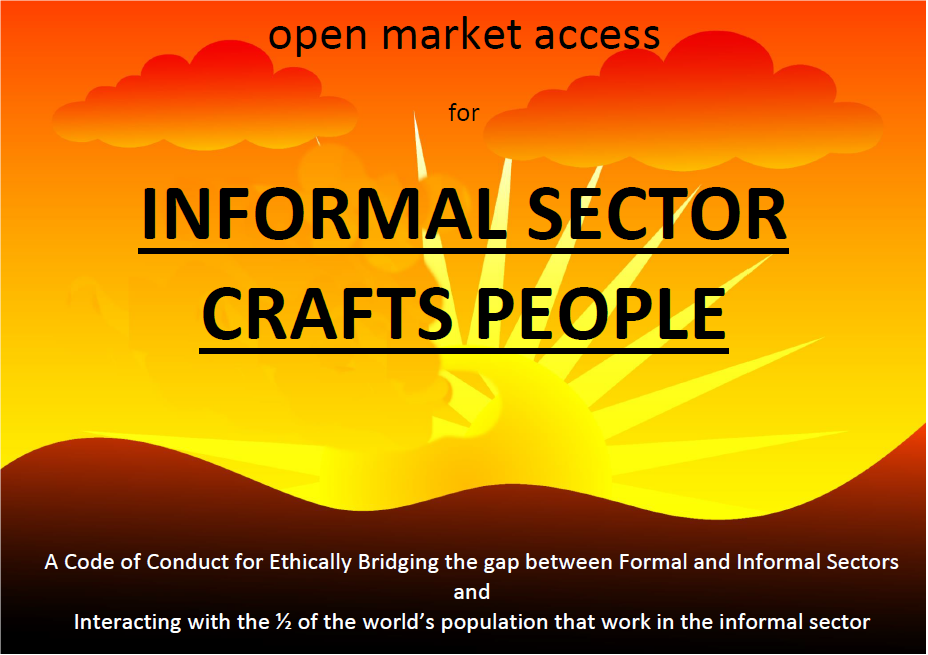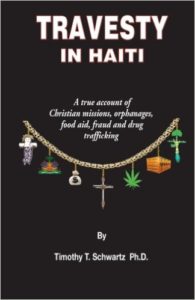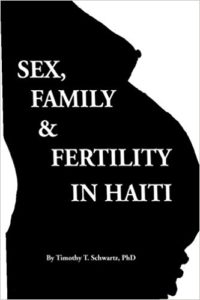
This paper was originally developed in association with the International Trade Center’s “Ethical Fashion Initiative.”
It builds on the United Nation’s Universal Declaration on Human Rights, article 23, Freedom and the Right to Work.
It adds a crucial missing component to that right: respect for indigenous cultures.
Cultural norms in the developing world are more than aesthetically interesting. They have a concrete impact on the individual and society. At the focus of all cultural traditions are child-rearing practices and social security.
A significant shortcoming in the application of the United Nation’s “right to work” is the failure to recognize that corporate business practices may and often do undermine cultural mechanisms of social security that have evolved over the course of centuries.
In undermining cultural traditions, enterprises have at times, and on a massive scale, broken the bonds of social cohesion that impart to the individual a sense of identity and economic security necessary to be a productive member of the workforce and his or her community.
In this way, recognition and respect for culture is related to the individual’s right to work and what should be the right–in dealing with the informal sector—to traditional culture to engage in multiple livelihood strategies.
At the end of the post is a downloadable “community contract” that corporate entities can use to assure respect for cultures while also negotiating their right to work.
Universal Declaration on Human Rights, article 23,
Freedom and the Right to Work.
The International Covenant on Economic, Social and Cultural Rights states in Part III, Article 6:
(1) The States Parties to the present Covenant recognize the right to work, which includes the right of everyone to the opportunity to gain his/her living by work which he/she freely chooses or accepts, and will take appropriate steps to safeguard this right.
WHY A CALL FOR AN INFORMAL SECTOR CODE OF CONDUCT:
Start with the tragedy of the impact of colonialism on aboriginal peoples throughout the World. From the South Pacific islanders such as the noble Maori of the South Pacific Nenets of Northern Russia, throughout Latin America to Proud Native North Americans, colonialism devastated aborigines of the world. The military defeat of these people is only one part of it. The subsequent confinement and forced conformance to an economy was a second holocaust. It disrupted tradtional social patterns, crushing families and kinship networks. It left in its wake alcoholism, single-parent families, and appalling rates of suicides. It’s an ongoing tragedy for many natives peoples in countries throughout the world.
Why?
Because traditional means of identity and social security were shattered. Densely integrated social networks, robust child-rearing, and traditional socialization strategies were broken.
The call for an Informal Sector Code of conduct rests on three pillars of logic: Culture, Business, and Environment
- Culture and the Individual’s right to social security independent of the formal workplace or formal sector social security mechanisms. This is a recognition of a) the all-to-frequent failure of States and International regulatory agencies to provide impoverished populations with social security and b) recognition that when accessing those communities and modifying their traditional social structures, business, and political entities with significantly more power than the individuals and the communities in question have often precipitated tragic and economically disastrous outcomes. International observers, labor rights activists, and corporate leaders are increasingly aware that these human tragedies come about from an undermining of traditional cultural social security mechanisms and the associated subsistence strategies. Examples can be found across the globe and throughout history. The most extreme contemporary examples include North and South American Indian societies, Australian Aborigines, New Zealand Maori, pygmies of Africa, peoples of Papua New Guinea.
- The right of Business to invest in individuals and communities and individuals to seek investors. Another extension of the right to work, economic laws, and other legal barriers have often been used to capture individuals as serfs and peasants depriving them of their freedom and right to work. Similarly, the absence of mechanisms for interfacing with peoples in the grey and informal sectors in which their production is embedded continues to deprive many of these peoples of the capacity to engage in direct production and trade with the world economy, thereby depriving them of their “Freedom and Right to Work”
- The right of all beings, human and otherwise, to a clean and healthy planet
 Download PDF
Download PDF




 Download PDF
Download PDF


